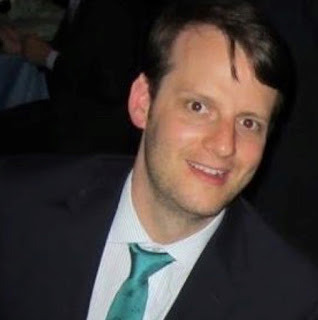In
mid-February, the Entomological Society of America welcomed its newest staff
member, Willet Hossfeld, certifications program manager. Willet will play a
lead role in the facilitation and growth of the ESA Board Certified
Entomologist and Associate Certified Entomologist programs, so he’s a person
that current and future BCEs and ACEs should get to know. Learn more about
Willet in the Q&A below.
Where are you coming to ESA
from?
Prior
to joining ESA, I was with the National Association of Home Builders, where I
worked on growing the federation’s membership, before which I was with the
Consumer Technology Association, where I oversaw the SmartHome and Vehicle
Technology divisions and worked on educational and promotional campaigns. I’ve
worked in the nonprofit and association sector for about four years now and
have grown to appreciate all the effort and resources that volunteers put back
into their industries.
How will your association
management background serve the ACE and BCE programs?
While
at the Consumer Technology Association, I oversaw the Mobile Electronics
Certified Professionals (MECP) Program, and I have experience in overseeing maintenance-of-certification
programs with medical specialty societies. Through this work, I gained an
appreciation for the importance of certification: both to differentiate oneself
from the competition and peers, as well as demonstrate to clients a dedication
to providing the best service possible. I look forward to taking these previous
experiences and working to build on the success of both programs. I am very
excited about the potential for ACE’s and BCE’s growth.
What is your experience with
certification in your own life?
I
grew up in a very much DIY house—the thought being that you could trust your
own work better than that of someone who wasn’t inherently invested in the job.
When my wife and I bought our house, though, there were a number of jobs that
needed to be addressed before we could move in that were well outside of the
scope of my capabilities. We wanted to ensure that things were done right.
Since I had worked with a voluntary certification program (MECP), I knew that
people who seek those certifications do so to gain a deeper knowledge of their
field and understand the root cause of an issue, rather than just the surface.
The contractors that we used for HVAC repair, mold remediation, and more all
had additional certifications in their field, something that I sought out. They
all took the time not just to tell me what was going to be fixed and how much
it would cost but also to explain what was causing the issue, how to prevent it
from reoccurring in the future, and why they chose the course of action that
they did. Giving me that extra information allowed me to investigate and
understand better. The extra step that these contractors provided gave me peace
of mind that they were indeed invested in providing the best service
possible.
How will you begin to learn
about entomology, pest management, and related science?
I
got to tour
the Smithsonian’s entomology collection on my second day on the job, and I
learned so much from that. I have
also been reading back-issues of the various entomology journals and Googling
everything I can to learn more about insects and their role in our environment.
When it comes to pest management, I am trying to organize a ride along with one
our ACE certified PMPs to understand the day-to-day of the job. I think this
will be a great opportunity to get a strong understanding of how being an ACE
helps PMPs do their job better.
What did you think of the
Smithsonian tour?
This
was probably the coolest ‘second day on the job’ activity I have ever gotten to
experience. The tour at the Smithsonian was amazing. Seeing all of the work
that goes into maintaining their collection of 35 million verified specimens
and getting to see some of them up-close definitely sparked an interest in me,
and I am eager to learn more about the field of entomology and learn more about
what our members do.
What’s one more interesting
or unique thing about you that you want to share?
I
always have a hard time with these kinds of questions; I always feel a little
uncomfortable talking about myself. I’ve travelled extensively throughout South
America and am relatively fluent in Spanish, and I can speak a little bit of
Brazilian Portuguese. In 2007, I co-organized a nonprofit to educate people on
alternative fuel vehicles. A few friends and I converted a 1959 Mercedes Diesel
to run on waste vegetable oil and competed in La Carrera Pan Americana, a
vintage car race through Mexico. Our plan had been to collect waste oil from
local restaurants and hotels to fuel the car and compete (very slowly) in the
race. Unfortunately, our support truck broke down and we were not able to
finish. One day, we hope to return and complete the race, proving the viability
of waste oil as a fuel. When I’m not at work, I enjoy cooking, sailing, and
spending as much time outside as possible.
Please
join us in welcoming Willet to ESA, and feel free to contact him at whossfeld@entsoc.org or 240-696-3769.

